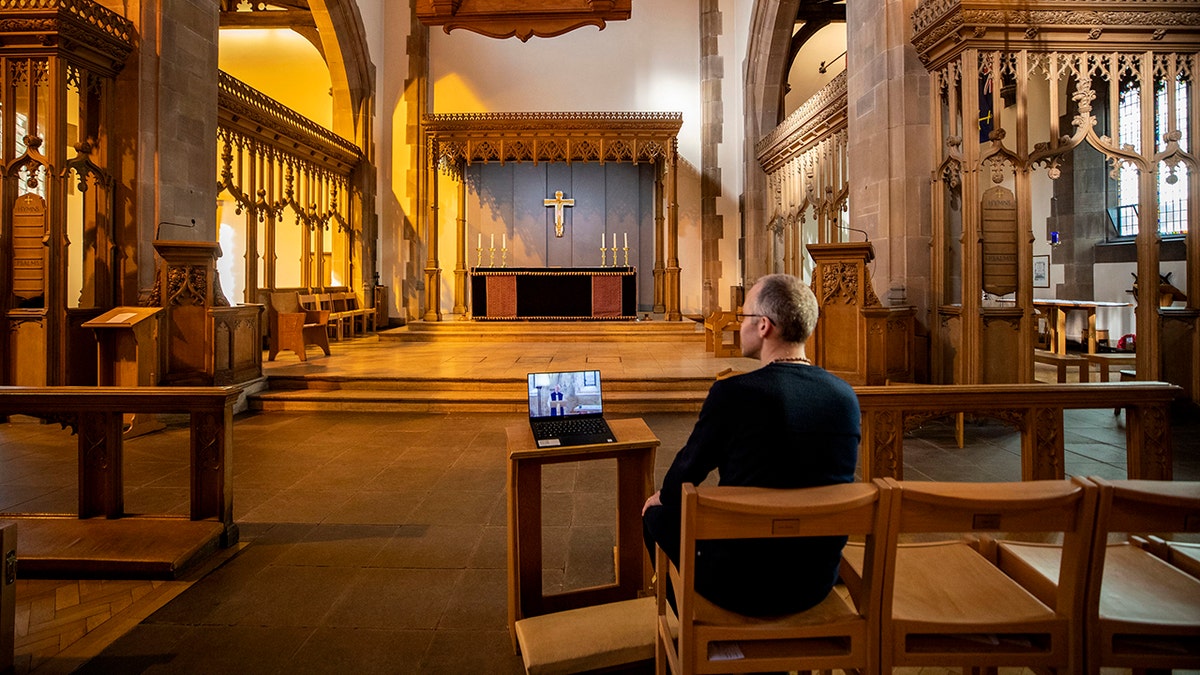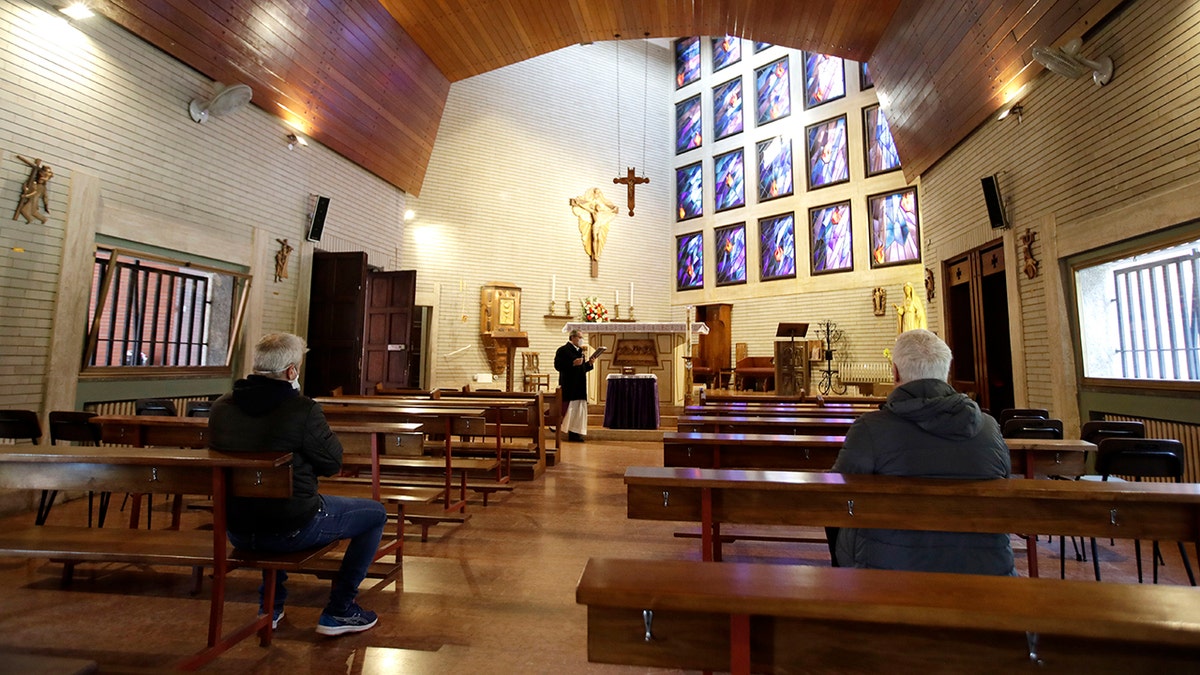Across faiths, religious rules bent as virus alters worship
All over the U.S., leaders in every religion are taking unprecedented steps to protect their members from the coronavirus.
Get all the latest news on coronavirus and more delivered daily to your inbox. Sign up here.
Major religions -- Christianity, Judaism and Islam -- are adapting to virtual rituals as the coronavirus pandemic causes many to close houses of worship to faithful followers.
Though some practices have stopped, like the Muslim pilgrimmage to Mecca in Saudi Arabia, faith leaders are finding creative ways to reach out, despite the president and the CDC urging no public gatherings of more than 10 people to stop the spread of COVID-19.
POPE ASKS CHRISTIANS TO RECITE LORD'S PRAYER AMID CORONAVIRUS PANDEMIC
"We've gotten a lot of questions," Rob Volmer, a member of the Episcopal Christ Church in Georgetown where a pastor and several members tested positive for the virus, told PBS. "What does that mean? What does that look like? Well, you know, we're not experts on this."

A church parishioner watches a laptop inside Liverpool Parish Church (Our Lady and St Nicholas) in Liverpool, England, during the Church of England's first virtual Sunday service given by the Archbishop of Canterbury Justin Welby. (Peter Byrne/PA via AP)
Churches, synagogues and mosques have gone beyond broadcasting services online to holding religious rituals virtually.
PRIEST OFFERS DRIVE-THRU CONFESSIONALS AMID CORONAVIRUS PANDEMIC: 'PEOPLE ARE SO GRATEFUL'
At the Dumbarton United Methodist Church in Georgetown, D.C., last Sunday, Owen Miller Quinn, the son of Daniel and Alexa Miller Quinn, was baptized as dozens celebrated through a Zoom conference, Patch.com reports.
Orthodox Rabbi Zarchi sent out an email, offering the first 10 men to respond a spot at a funeral. He was seeking a minyan, the number required for communal worship in Judaism, so he could recite the mourner's prayer, or kaddish.
Other rabbis also have shifted to using technology more.
“We’re using Zoom, using Google Hangouts, using Facebook,” Rabbi Steve Leder, who leads one of Los Angeles’ largest synagogues, Wilshire Boulevard Temple, told Forbes. “I have engaged in this kind of media before. But now this crisis has forced me to become much more comfortable and familiar with it…it’s like I just discovered electricity.”
CLICK HERE FOR MORE STORIES ON FAITH
He said some Jewish congregations are hesitant to go virtual with services and funerals.
“They need to get over it,” Leder said. “These are extraordinary times.”
When Catholic churches began closing in China and Hong Kong because of the virus, Pope Francis emphasized the Catholic Church's use of spiritual communion, a way for people to celebrate the Holy Eucharist even if they are unable to physically receive it.

Deacon Claudio Moneta blesses the ashes of Filippo, 89, died for natural causes last March 8, as two relatives follow the ceremony at the Bruzzano chapel cemetery, in Milan, Italy, Saturday, March 21, 2020. (AP Photo/Luca Bruno)
“My Jesus, I believe you are truly present in the Holy Sacrament of the Altar. I love you above all things, and I desire you in my soul," the pope prays on behalf of others, Crux Now reports. "Because right now I cannot receive you sacramentally, at least come spiritually into my heart. As you have already come, I embrace you and unite myself to you. Do not allow that I am ever separated from you.”
On Friday, the Vatican Penitentiary, which handles matters related to conscience, released a list of special indulgences for COVID-19 patients, medical staff caring for them, those quarantined, and all those praying for them.
It clarified that confession cannot be done at a distance, over the phone or on Skype, but the pope said during a livestreamed Mass Friday to go directly to God.
CLICK FOR COMPLETE CORONAVIRUS COVERAGE
“It is very clear: If you cannot find a priest to confess to, speak directly to God, your father, and tell him the truth," Francis said. "Say, ‘Lord, I did this, this, this. Forgive me,’ and ask for pardon with all your heart.”
With Easter and Passover quickly approaching, many are preparing for virtual services.

